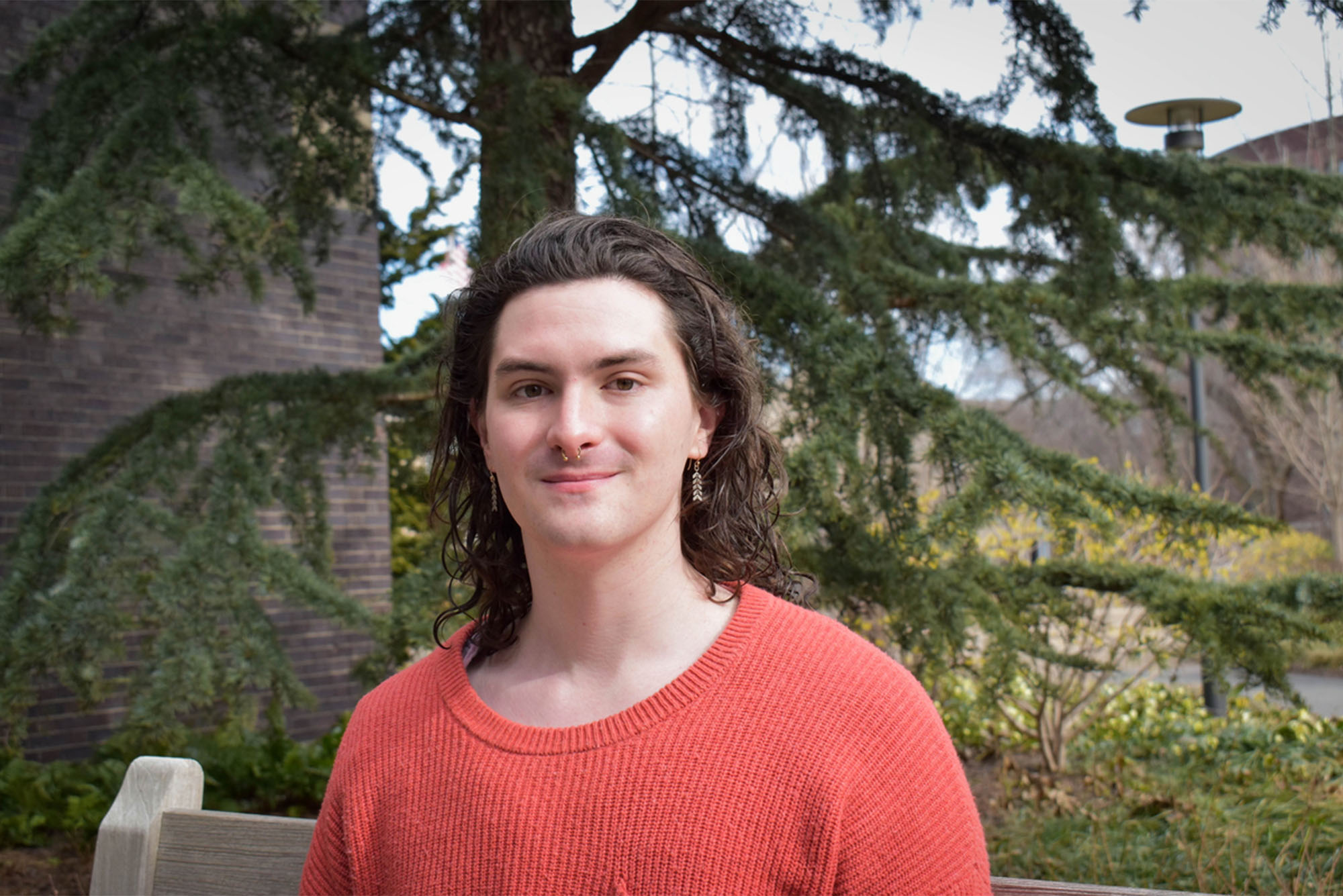BU Researcher Named a 2024 Hertz Fellow; Award Honors “Innovators with the Greatest Potential”

Hertz Fellow Emmy Blumenthal says the opportunity to conduct research as a BU undergraduate was fundamental to “forming my intellectual identity.” Photo courtesy of Blumenthal
BU Researcher Named a 2024 Hertz Fellow; Award Honors “Innovators with the Greatest Potential”
Biophysicist and recent alum Emmy Blumenthal wins prestigious fellowship that comes with up to $250,000 in funding
A Boston University researcher has been ranked among the nation’s “most promising innovators in science and technology.” Emmy Blumenthal has been named a 2024 Hertz Fellow—one of just 18 recipients of the prestigious honor this year.
Given by the Fannie and John Hertz Foundation, the award includes five years of funding, worth up to $250,000, as well as mentorship and networking opportunities. According to the foundation, past winners have gone on to win Nobel Prizes and MacArthur “genius grants,” launch more than 375 companies, and secure over 3,000 patents.
Blumenthal, who is preparing to start a PhD program, specializes in biophysics, a field that uses quantitative techniques and tools from physics to figure out how complex biological and ecological systems work.
“Being named a Hertz Fellow is a significant validation of my and my collaborators’ work, and the scientific significance of theoretical biophysics as a whole,” says Blumenthal (CAS’23), a BU postbaccalaureate research assistant. “It is also incredibly encouraging that the Hertz Foundation views me as a promising future scientist. I hope my work in graduate school is impactful and I make good use of the freedom the fellowship provides.”
The foundation was launched in the 1950s by auto industry entrepreneur John D. Hertz—best known for the Hertz rental car company—who donated his fortune to a fund for undergraduate scholarships; the nonprofit later transitioned to supporting graduate students. The foundation says it backs “innovators with the greatest potential to create transformative solutions to the world’s most urgent challenges.”
Although Blumenthal’s work is formidably esoteric—“analyzing ecological models and other biophysical systems with a very large number of degrees of freedom interacting complexly, applying and expanding tools from statistical and thermal physics”—their goals are straightforward: come up with ways of providing “a deeper understanding of the natural world and facilitating future breakthroughs that might improve human well-being.”
Blumenthal’s former professors—and now colleagues—in BU’s physics department say the recognition from Hertz is well-deserved, and acknowledge Blumenthal not just for their talent, but also for their generosity in helping other students.
“Emmy was, from the very beginning, much more than a superb student,” says Shyamsunder Erramilli, a BU College of Arts & Sciences chair and professor of physics, who spoke to The Brink to share reflections on Blumenthal from across his department. “In class, Emmy would courageously offer speculative ideas to open-ended questions; out of the classroom, Emmy would dive deeper into a problem and uncover high-quality and relevant published material. In a lab class, Emmy creatively invented solutions, such as using machine vision software of their own creation.”
Blumenthal credits their time as an undergraduate in BU’s physics department with sparking a passion for science—and for helping them develop and grow as a researcher.
“The research opportunities provided by faculty members—particularly Professors Alex Sushkov and Pankaj Mehta—were fundamental to introducing me to physics research and forming my intellectual identity,” says Blumenthal, whose undergraduate contributions to research were published twice in Physical Review Letters. “The physics department at BU—especially the undergraduate community—has a uniquely supportive culture. I also feel exceptionally lucky to have been supported by BU’s Trustee Scholarship throughout my time as an undergraduate.”
In recent years, BU students have also been named Churchill, Fulbright, Goldwater, and Truman Scholars, placing Blumenthal in a long line of successful award recipients.
“They collectively demonstrate the strength of BU as a top research university, as well as BU’s serious commitment to providing undergraduates with opportunities to engage in meaningful research on campus,” says Jeff Berg, BU’s director of national and international scholarships. His office helps connect students to award opportunities, like the Hertz Fellowship. “For Emmy, whose deep passion for physics stretches back to high school, they arrived on campus and wasted no time in taking full advantage of the research landscape here. It has been so exciting and rewarding to see Emmy’s growth and achievements across their years at BU.”
This fall, Blumenthal will begin doctoral studies at Princeton University, but for now, they are digging into their research at BU.
“One of the things that makes the Hertz selection process especially selective and rigorous is the program’s interest in candidates who want to leverage their talents to have a positive impact on the world,” says Amie Grills, BU’s associate provost for undergraduate affairs. “Emmy not only demonstrates the exceptional research talent, but also the personal integrity that the Hertz Fellowship demands.
“I hope this inspires current undergraduates to explore how they might participate in research and other experiential learning opportunities aligned with their interests at BU.”

Comments & Discussion
Boston University moderates comments to facilitate an informed, substantive, civil conversation. Abusive, profane, self-promotional, misleading, incoherent or off-topic comments will be rejected. Moderators are staffed during regular business hours (EST) and can only accept comments written in English. Statistics or facts must include a citation or a link to the citation.